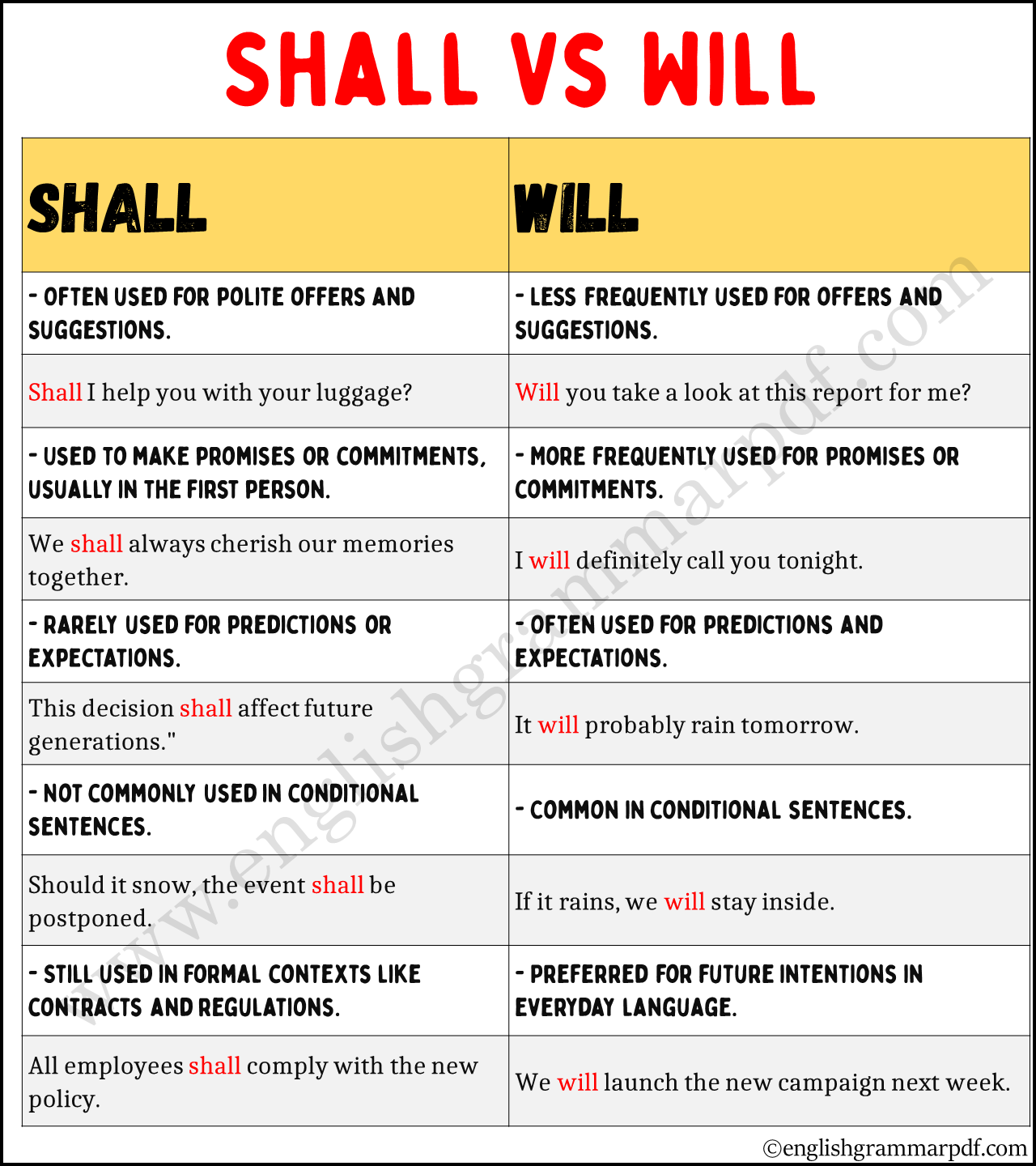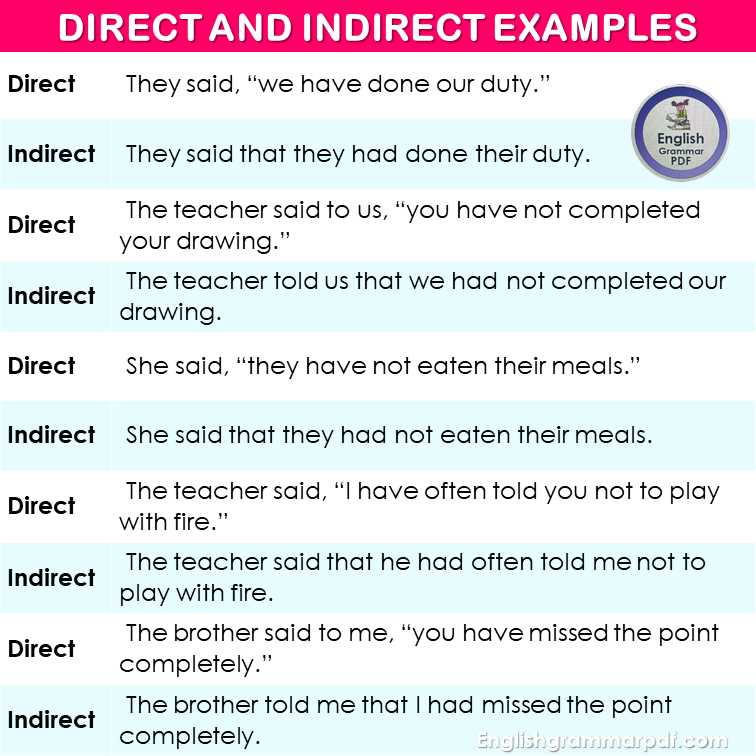In English, shall and will are both modal auxiliary verbs used to express future intentions or actions. However, they each have distinct meanings and connotations, and their usage differs depending on the context and region. Here’s a comprehensive guide to understanding the differences between shall and will.
Usage of Shall
Shall is traditionally used in British English to express future intentions, especially in the first person (with I and we). It carries a tone of formality and suggests a strong intention or determination.
Cases Where Shall Is Used:
- Offers and Suggestions
- Example: Shall I open the window?
- Explanation: Used when offering to do something or making a polite suggestion.
- Formal Rules and Regulations
- Example: The committee shall meet every Friday.
- Explanation: Often used in formal documents like contracts, rules, and regulations to indicate obligation.
- Promises and Commitments
- Example: I shall return your book tomorrow.
- Explanation: Used to make promises, usually in the first person.
- Determined Future Actions
- Example: We shall overcome this challenge.
- Explanation: Suggests strong intention or determination.
- Legal and Official Contexts
- Example: The parties shall abide by the agreement.
- Explanation: Common in legal texts to express obligation.
Example Sentences Using Shall:
- Shall we dance?
- I shall see you at the meeting tomorrow.
- You shall not pass!
- The report shall be submitted by Monday.
- The council shall issue a statement soon.
- Shall I call a taxi for you?
- We shall never forget this day.
- All attendees shall follow the dress code.
- No one shall enter the premises without permission.
- I shall write to you once I have more information.
Usage of Will
Will is more commonly used in both American and British English to express future intentions. It is versatile and can be used in any grammatical person (first, second, or third person).
Cases Where Will Is Used:
- General Future Intentions
- Example: I will go to the market tomorrow.
- Explanation: Indicates planned future actions.
- Predictions and Expectations
- Example: It will rain tomorrow.
- Explanation: Used to predict future events.
- Offers and Promises
- Example: I will help you move your furniture.
- Explanation: Used to offer assistance or make promises.
- Conditional Sentences
- Example: If you study hard, you will pass the exam.
- Explanation: Common in conditional statements.
- Requests
- Example: Will you pass me the salt, please?
- Explanation: Used to make polite requests.
Example Sentences Using Will:
- I will call you later.
- He will finish the project by Friday.
- Will you join us for dinner?
- They will probably arrive at 7 p.m.
- The sun will rise in the east.
- I will never forget your kindness.
- Will it be possible to change my flight?
- She will help us organize the event.
- If it snows, we will stay inside.
- You will love this book.

Traditional vs. Modern Usage
Traditional Usage:
In older grammar rules, shall was used with the first person (I/we) to denote simple future actions, while will was used for other grammatical persons. For emphasis or determination, the roles were reversed:
- First Person (I/We):
- Simple Future: I shall go to the party.
- Emphatic Future: I will go to the party.
- Second and Third Persons (You/He/She/They):
- Simple Future: They will go to the party.
- Emphatic Future: They shall go to the party.
Modern Usage:
In contemporary English, shall is less common, especially in American English, and will is more frequently used for all grammatical persons. Shall still retains its traditional meaning in legal documents and formal settings.
Summary of Differences:
- Formality:
- Shall is more formal than will.
- Obligation:
- Shall is used to express obligations, especially in legal contexts.
- Intention:
- Shall often implies strong intention or determination.
- Region:
- Shall is more common in British English, while will is preferred in American English.
- Offers and Suggestions:
- Shall is used for polite offers and suggestions.
Conclusion
Shall and will both serve important functions in English grammar. Understanding their differences and proper usage can enhance clarity and precision in writing and speaking. Use shall in formal and legal contexts or for offers and suggestions, while will is ideal for general future intentions, predictions, and promises.


